When it comes to choosing a material for your bathroom vanity countertop, granite is a top choice for many homeowners. Not only is it visually appealing, but it also offers a durable and long-lasting option for your bathroom. Granite is a natural stone that is known for its unique patterns and colors, making each countertop one-of-a-kind. Its strength and resistance to scratches and heat make it a practical choice for a busy bathroom.Granite Bathroom Vanity Countertop
For a luxurious and elegant look, marble is a popular choice for bathroom vanity countertops. This natural stone is known for its beauty and versatility, with a range of colors and patterns available. However, marble is a softer material compared to other options and may require more maintenance to prevent staining and etching. It is also a more expensive option, but its timeless appeal makes it a worthwhile investment.Marble Bathroom Vanity Countertop
Quartz is a man-made material that has become a popular choice for bathroom vanity countertops. It is made of natural quartz crystals combined with resin and pigments to create a durable and non-porous surface. Quartz offers a wide variety of colors and patterns to choose from, making it easy to find a style that fits your bathroom design. It is also resistant to scratches, stains, and heat, making it a low-maintenance option for busy bathrooms.Quartz Bathroom Vanity Countertop
Laminate is a budget-friendly option for bathroom vanity countertops. It is made of layers of plastic laminate bonded to a particleboard or plywood base. While it may not have the same durability as other materials, it offers a wide range of colors and patterns to choose from, including designs that mimic the look of more expensive materials like granite or marble. Laminate is also easy to clean and maintain, making it a practical choice for a low-traffic bathroom.Laminate Bathroom Vanity Countertop
Wood offers a warm and natural option for bathroom vanity countertops. It can add character and warmth to any bathroom and can be customized with various stains and finishes to fit your design style. However, wood is a porous material and will require regular sealing to prevent water damage. It is also more susceptible to scratches and dents, so it may not be the best choice for a heavily used bathroom.Wood Bathroom Vanity Countertop
For a modern and industrial look, concrete is a unique option for bathroom vanity countertops. It offers a sleek and seamless appearance and can be customized with different colors and finishes. Concrete is a durable and heat-resistant material, but it may require regular sealing to prevent stains and water damage. It is also a more expensive option, but its distinctive look can make a statement in any bathroom.Concrete Bathroom Vanity Countertop
Tile is a versatile option for bathroom vanity countertops, with a wide range of colors, patterns, and shapes available. It is durable and easy to clean, making it a practical choice for a high-traffic bathroom. However, the grout between tiles may require regular cleaning and maintenance to prevent staining or mold growth. Tile is also a more affordable option, making it a popular choice for budget-conscious homeowners.Tile Bathroom Vanity Countertop
Solid surface countertops are made of a combination of acrylic and polyester resins, creating a seamless and non-porous surface. They are available in a range of colors and patterns and can even mimic the look of natural stone. Solid surface countertops are durable and easy to maintain, but they may be susceptible to scratches and heat damage. They are also a more expensive option, but their sleek and modern appearance can elevate any bathroom design.Solid Surface Bathroom Vanity Countertop
Porcelain offers a durable and low-maintenance option for bathroom vanity countertops. It is a type of ceramic that is fired at a higher temperature, making it harder and more durable than traditional ceramic tiles. Porcelain is resistant to water, stains, and scratches, making it a practical choice for a busy bathroom. It is also available in a variety of colors and patterns, including designs that mimic natural stone.Porcelain Bathroom Vanity Countertop
Acrylic countertops are a budget-friendly option for bathroom vanities. They are made of a solid surface material that is lightweight and easy to install. Acrylic is also non-porous and resistant to scratches and stains, making it a low-maintenance choice for a bathroom. However, it may not offer the same durability as other materials and may be prone to discoloration over time.Acrylic Bathroom Vanity Countertop
The Importance of Choosing the Right Bathroom Vanity Countertop Material

The bathroom vanity is often the focal point of a bathroom, and the countertop is a key component of its design. Not only does the countertop provide a functional surface for daily use, but it also adds to the overall aesthetic of the space. As such, choosing the right bathroom vanity countertop material is crucial in creating a beautiful and functional bathroom.
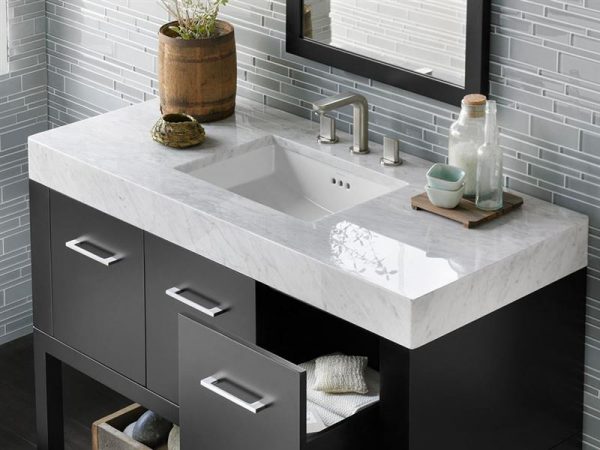 When it comes to bathroom vanity countertops, there are numerous options available, each with its own unique characteristics and benefits.
Granite
,
quartz
,
marble
,
solid surface
, and
laminate
are some of the most popular materials used for bathroom countertops. Each of these materials has its own set of strengths and weaknesses, and it's important to consider these factors when making a decision.
Granite
is a natural stone that is known for its durability and resistance to heat and scratches. It also comes in a variety of colors and patterns, making it a versatile choice for any bathroom design.
Quartz
, on the other hand, is an engineered stone that is highly durable and low maintenance. It is also non-porous, making it resistant to stains and bacteria, making it a hygienic choice for bathrooms.
Marble
has long been a symbol of luxury and elegance and is a popular choice for bathroom countertops. Its unique veining patterns and range of colors add a touch of sophistication to any space. However, it is a softer stone and can be prone to staining and scratching, so it may not be the best choice for high-traffic bathrooms.
For those looking for a more budget-friendly option,
solid surface
and
laminate
countertops are great choices. Solid surface countertops, such as Corian, are made from a blend of acrylic and natural materials, making them durable and easy to maintain. They also come in a wide range of colors and can even mimic the look of more expensive materials like granite and marble. Laminate, on the other hand, is a cost-effective option that comes in a variety of colors, patterns, and textures. It is also low maintenance and resistant to stains and water damage.
In addition to considering the material's durability, aesthetics, and maintenance, it's also important to think about the overall style and design of the bathroom. For a modern and sleek look, quartz or solid surface countertops may be the best choice. For a more traditional or luxurious feel, granite or marble may be the way to go. It's important to choose a material that not only fits your budget and lifestyle but also complements the overall design of your bathroom.
In conclusion, choosing the right bathroom vanity countertop material is crucial in creating a functional and visually appealing bathroom. Considering factors such as durability, maintenance, and design can help you make the best decision for your space. Whichever material you choose, make sure it fits your budget and complements your overall bathroom design.
When it comes to bathroom vanity countertops, there are numerous options available, each with its own unique characteristics and benefits.
Granite
,
quartz
,
marble
,
solid surface
, and
laminate
are some of the most popular materials used for bathroom countertops. Each of these materials has its own set of strengths and weaknesses, and it's important to consider these factors when making a decision.
Granite
is a natural stone that is known for its durability and resistance to heat and scratches. It also comes in a variety of colors and patterns, making it a versatile choice for any bathroom design.
Quartz
, on the other hand, is an engineered stone that is highly durable and low maintenance. It is also non-porous, making it resistant to stains and bacteria, making it a hygienic choice for bathrooms.
Marble
has long been a symbol of luxury and elegance and is a popular choice for bathroom countertops. Its unique veining patterns and range of colors add a touch of sophistication to any space. However, it is a softer stone and can be prone to staining and scratching, so it may not be the best choice for high-traffic bathrooms.
For those looking for a more budget-friendly option,
solid surface
and
laminate
countertops are great choices. Solid surface countertops, such as Corian, are made from a blend of acrylic and natural materials, making them durable and easy to maintain. They also come in a wide range of colors and can even mimic the look of more expensive materials like granite and marble. Laminate, on the other hand, is a cost-effective option that comes in a variety of colors, patterns, and textures. It is also low maintenance and resistant to stains and water damage.
In addition to considering the material's durability, aesthetics, and maintenance, it's also important to think about the overall style and design of the bathroom. For a modern and sleek look, quartz or solid surface countertops may be the best choice. For a more traditional or luxurious feel, granite or marble may be the way to go. It's important to choose a material that not only fits your budget and lifestyle but also complements the overall design of your bathroom.
In conclusion, choosing the right bathroom vanity countertop material is crucial in creating a functional and visually appealing bathroom. Considering factors such as durability, maintenance, and design can help you make the best decision for your space. Whichever material you choose, make sure it fits your budget and complements your overall bathroom design.





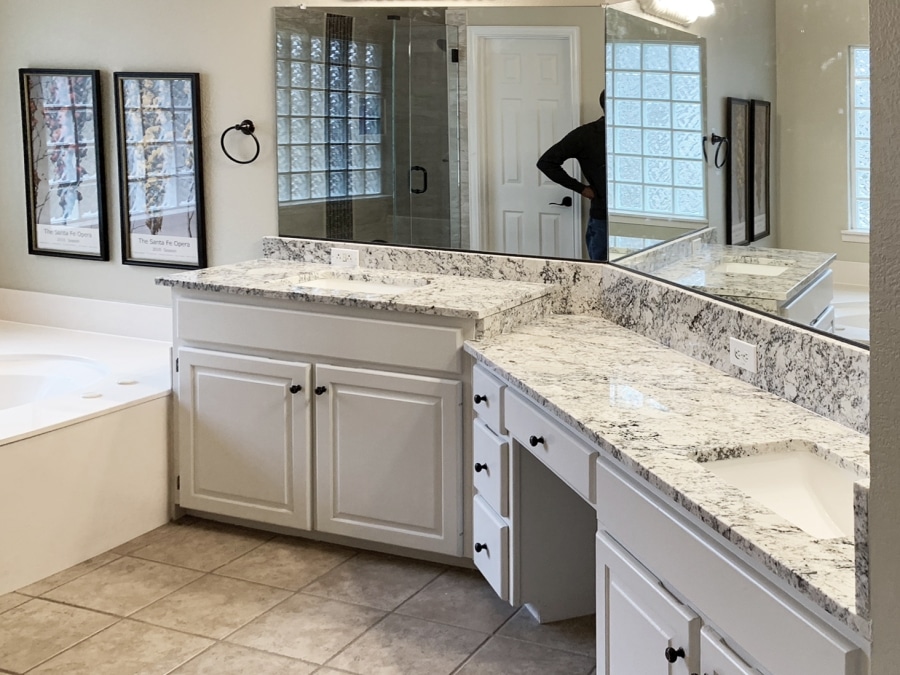

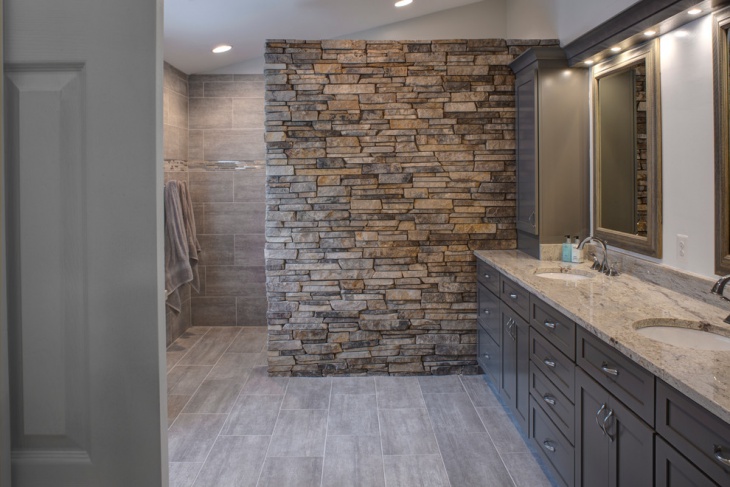

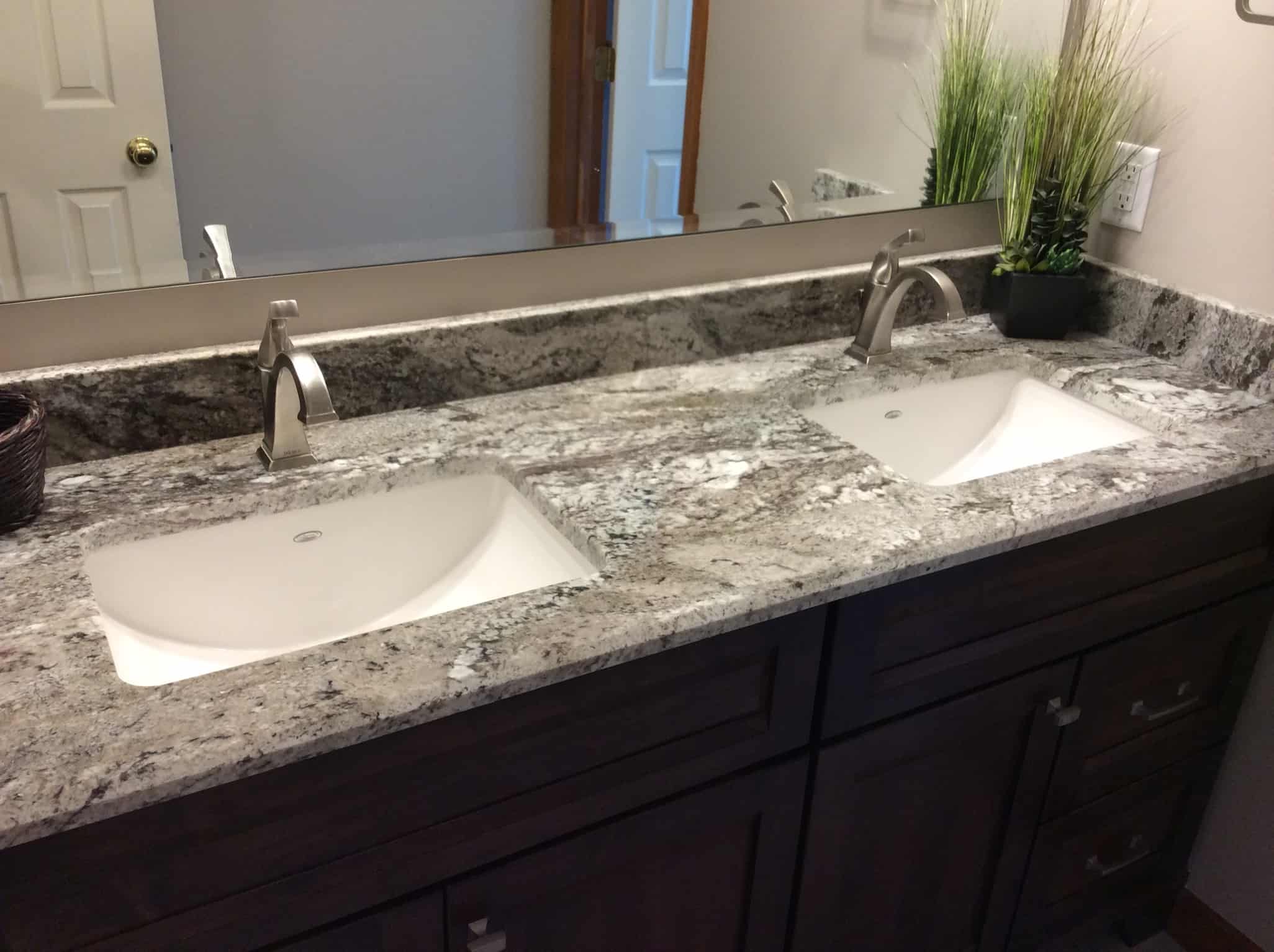
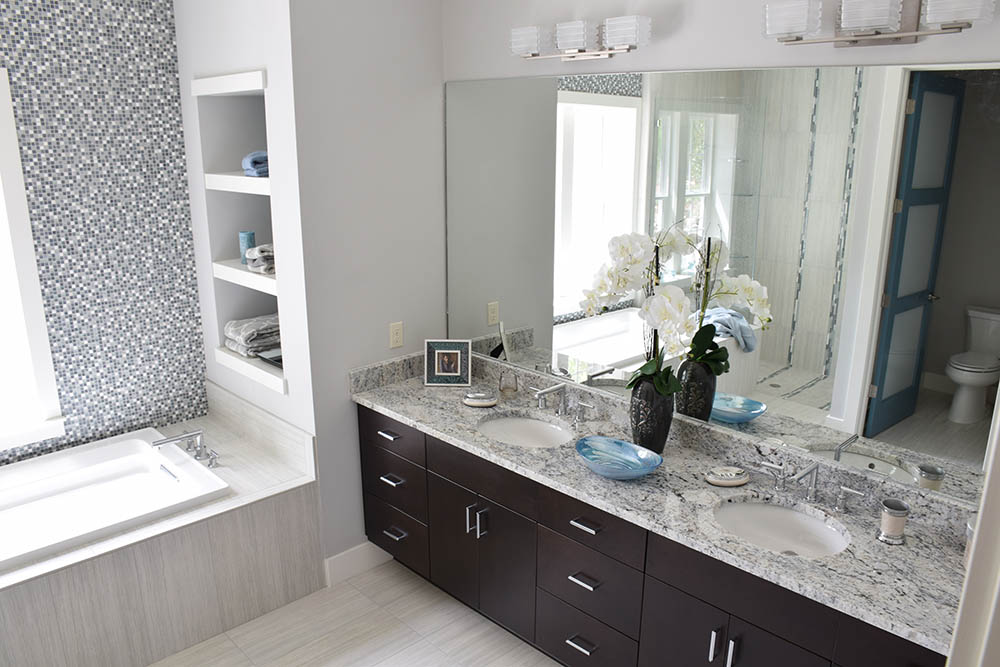
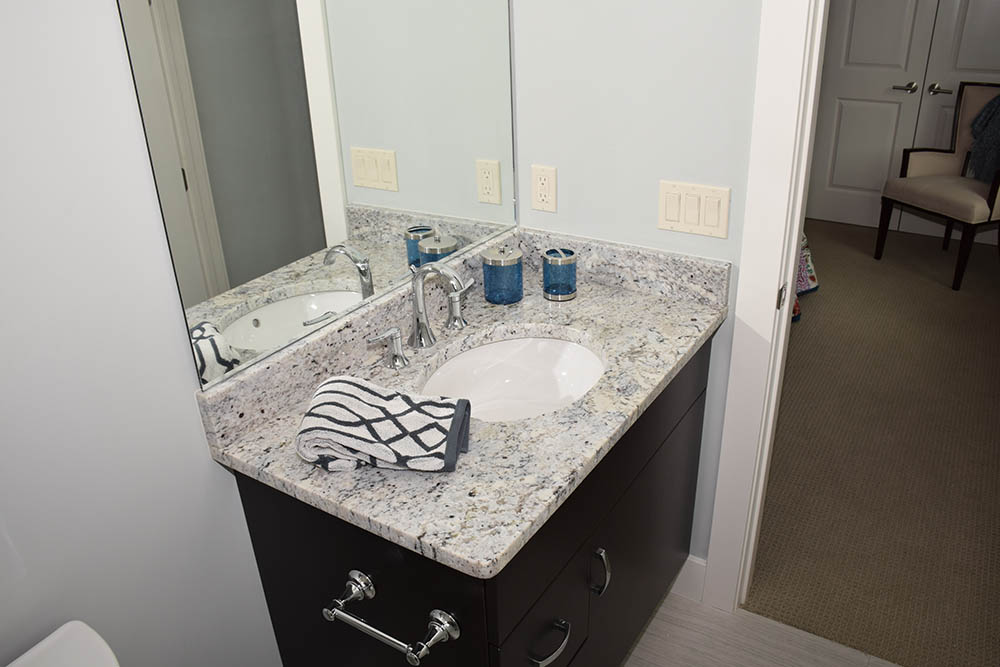
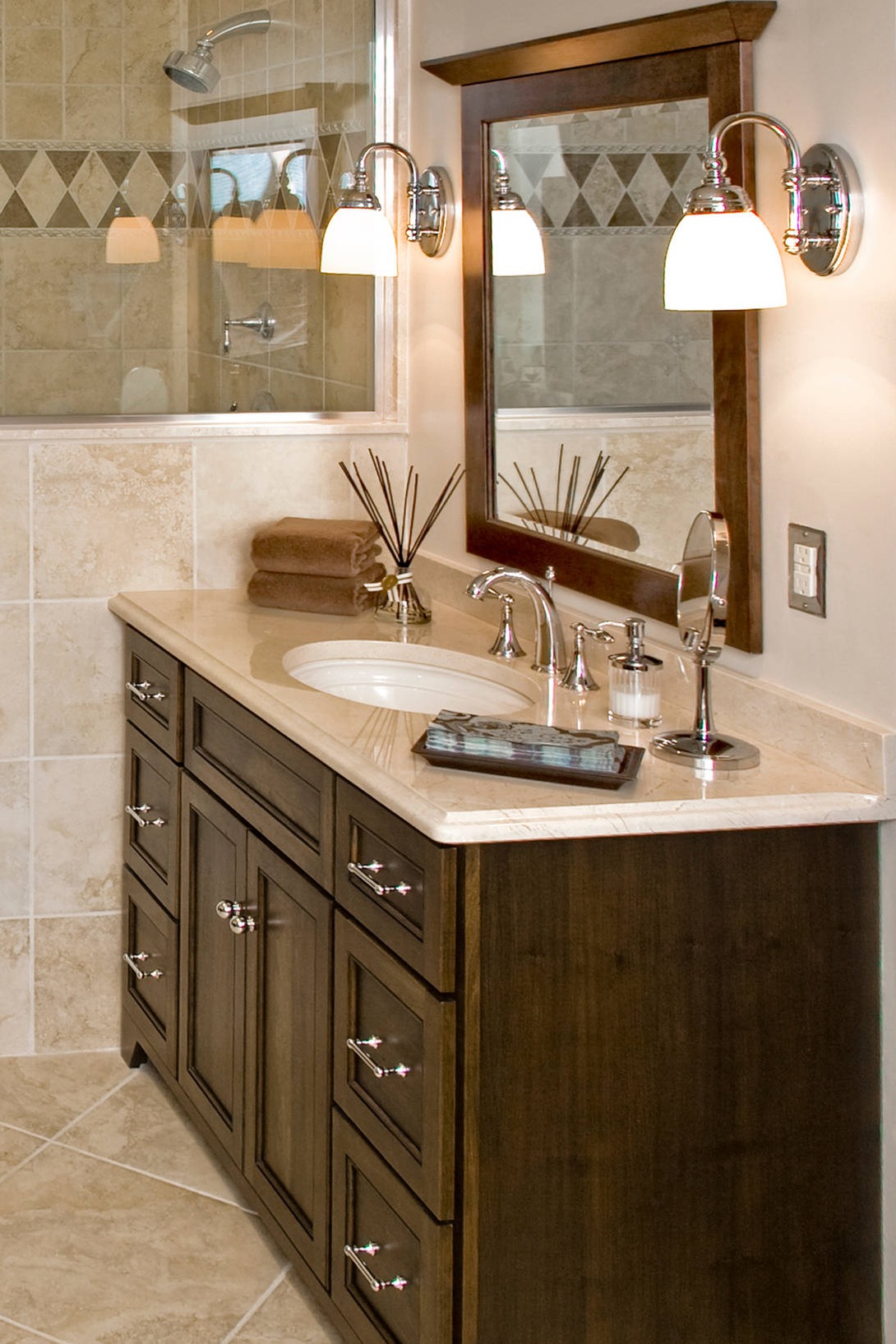


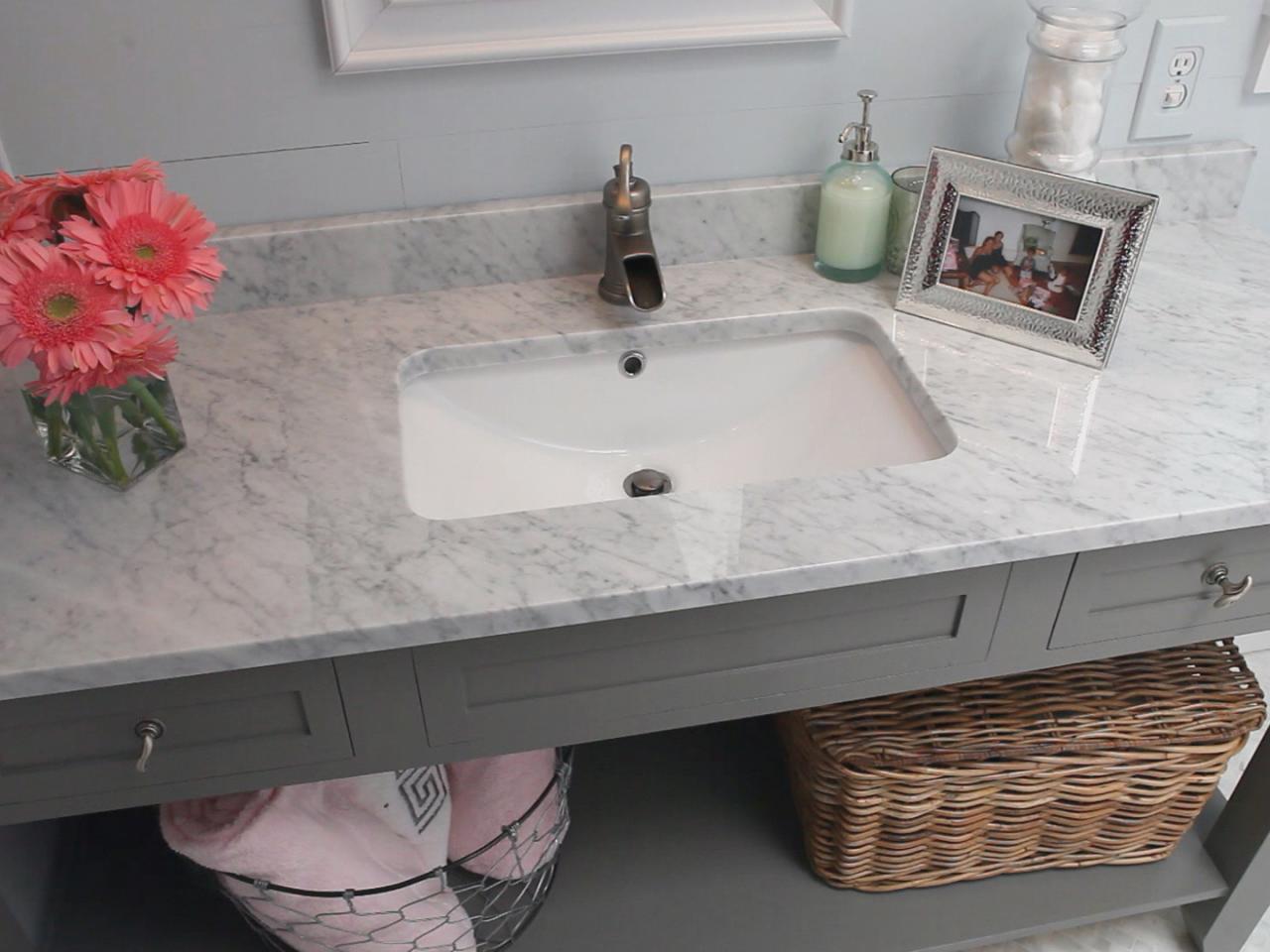
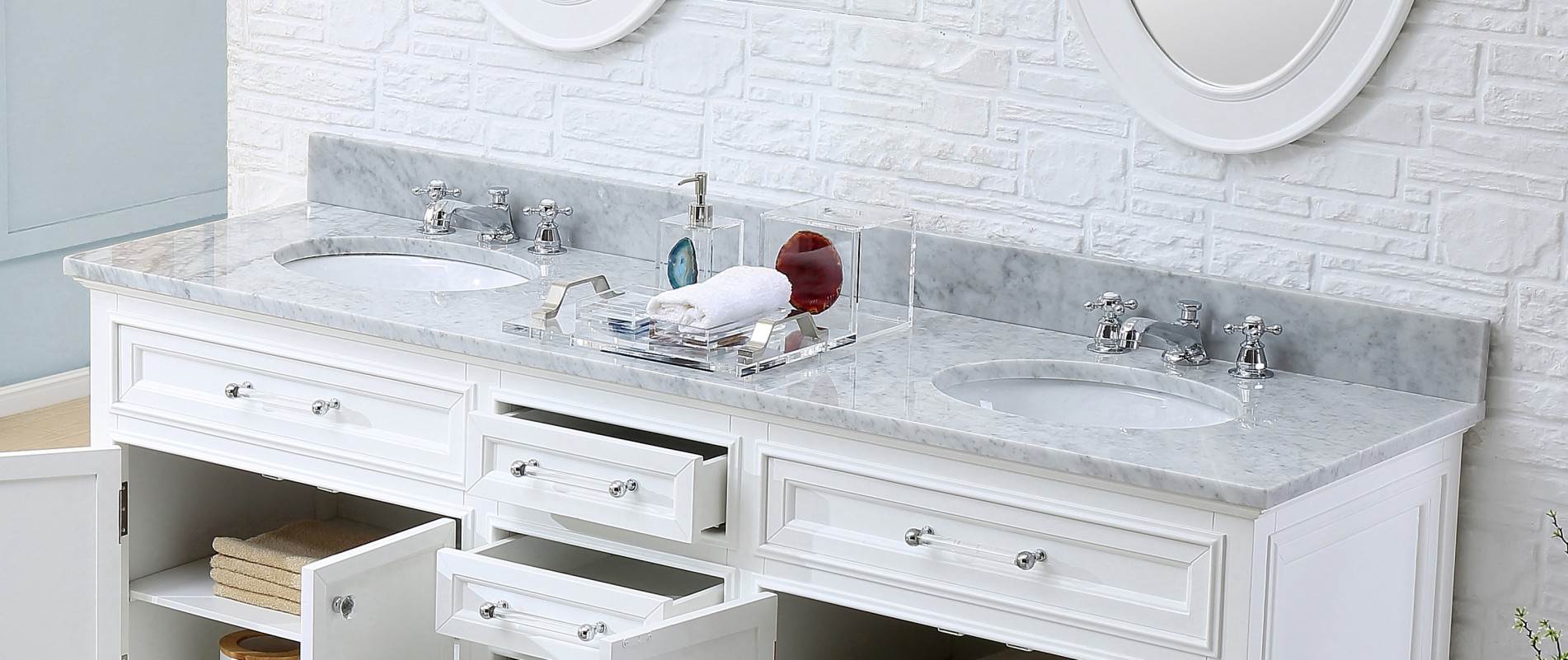




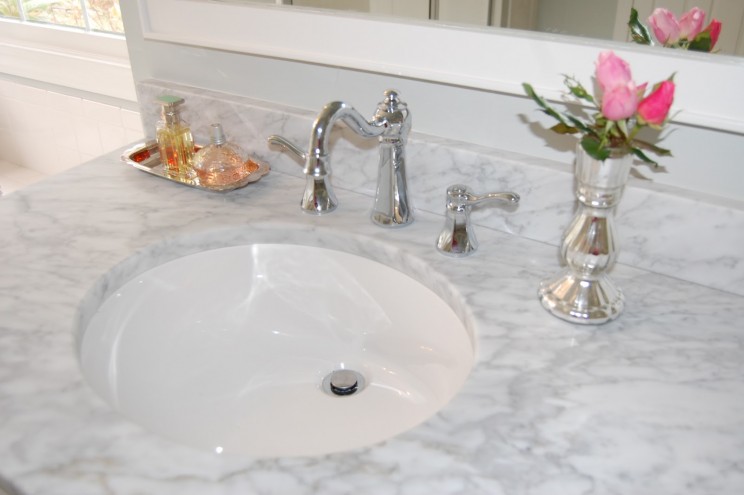








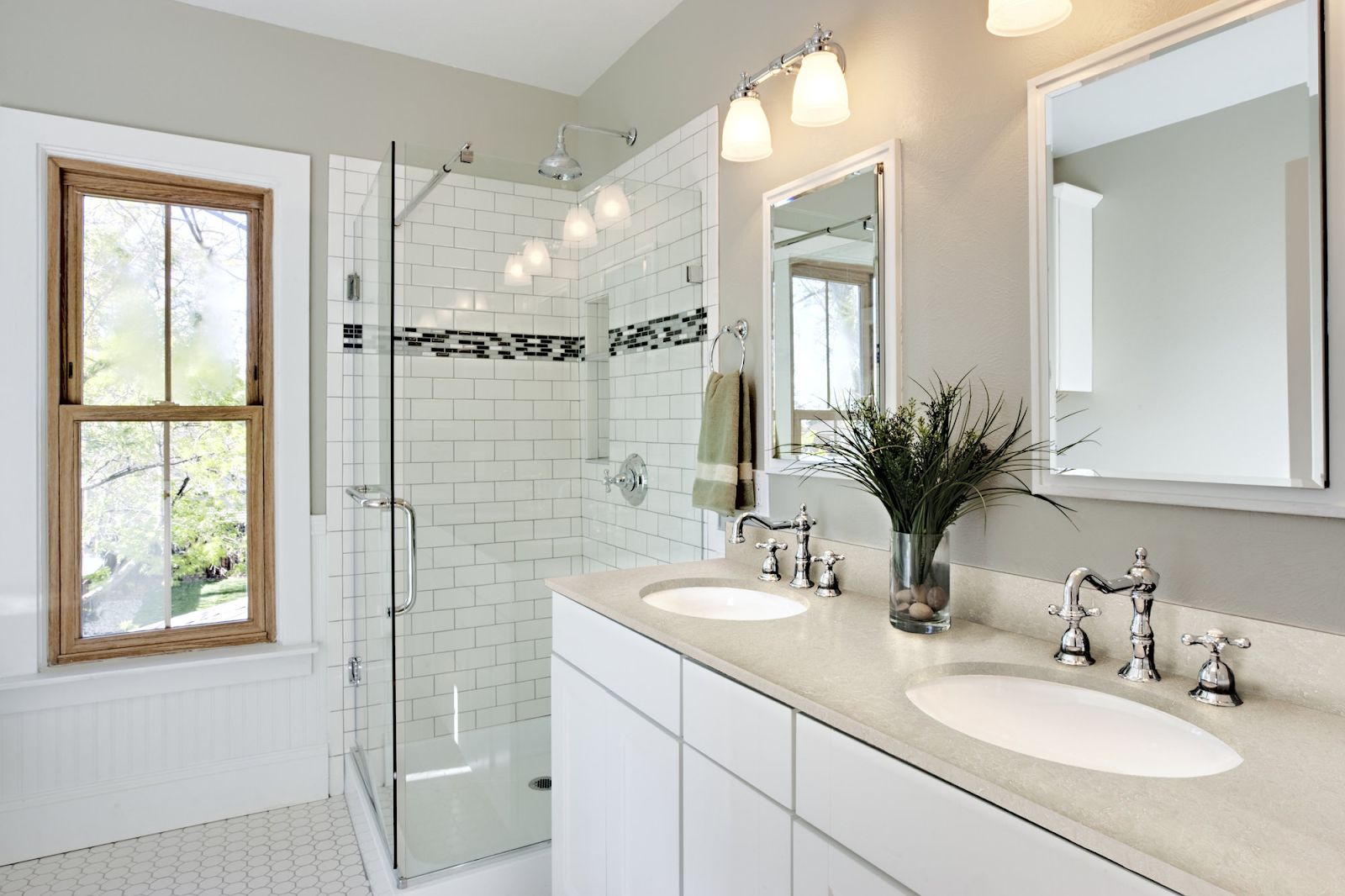

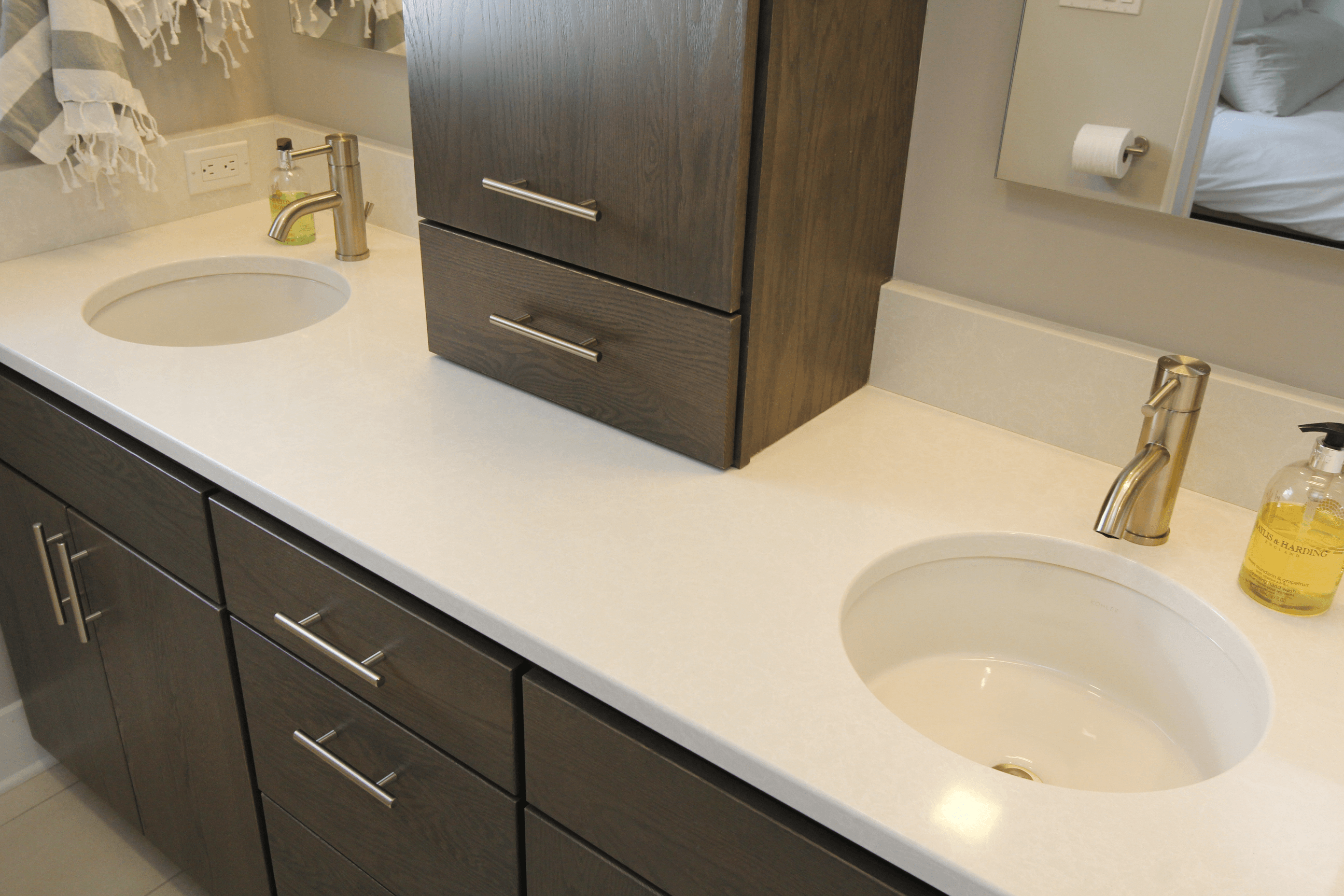
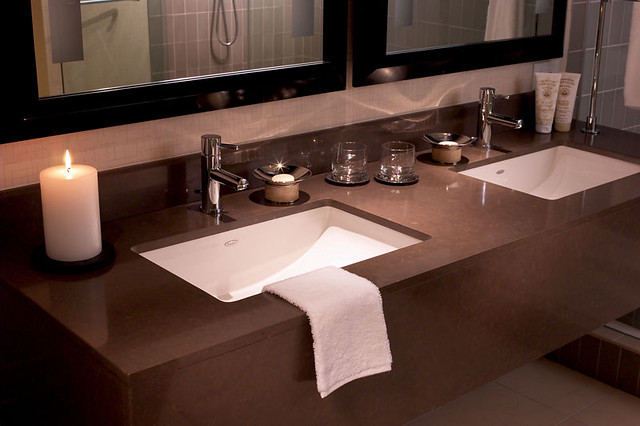




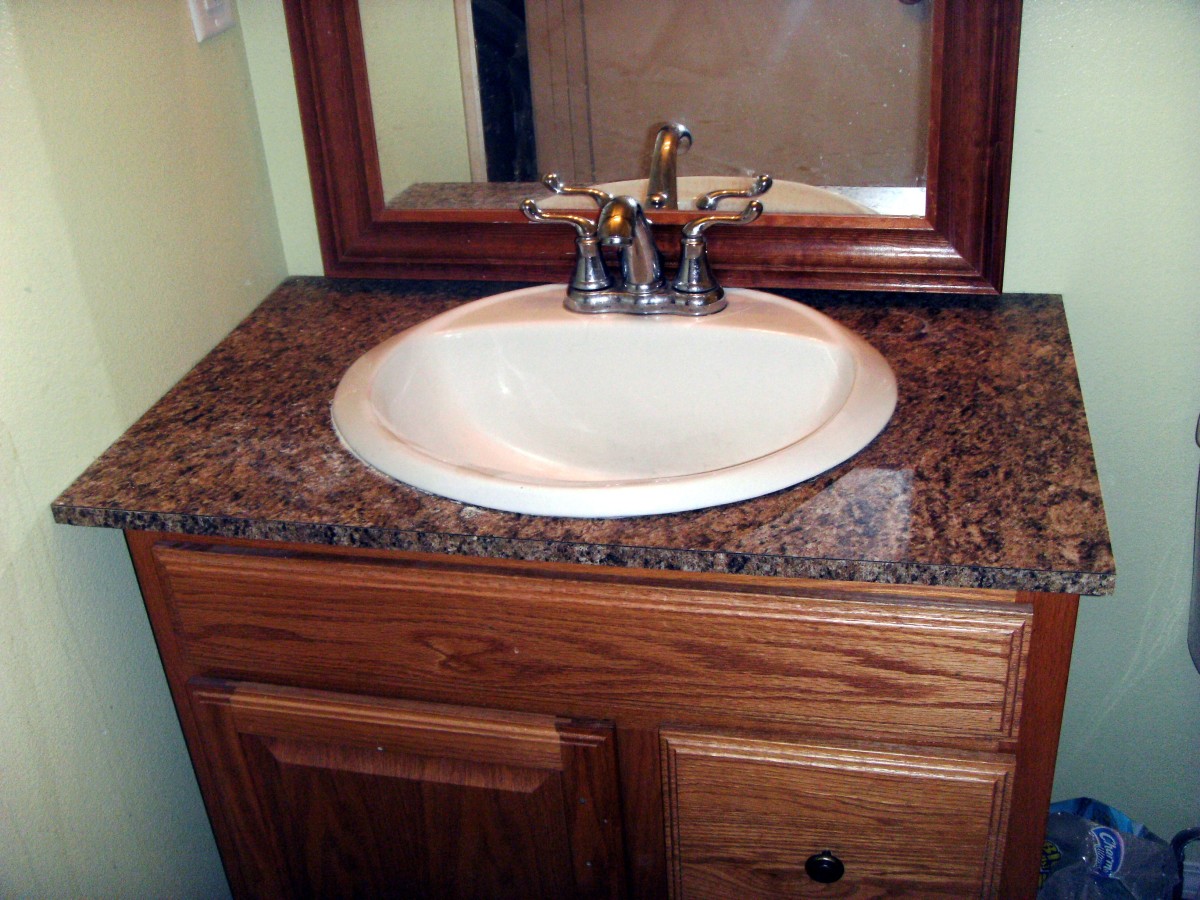









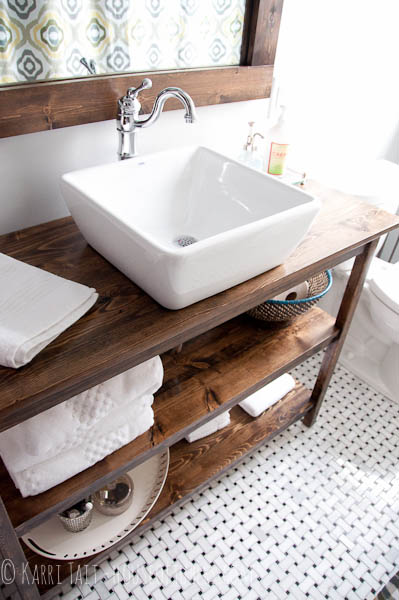






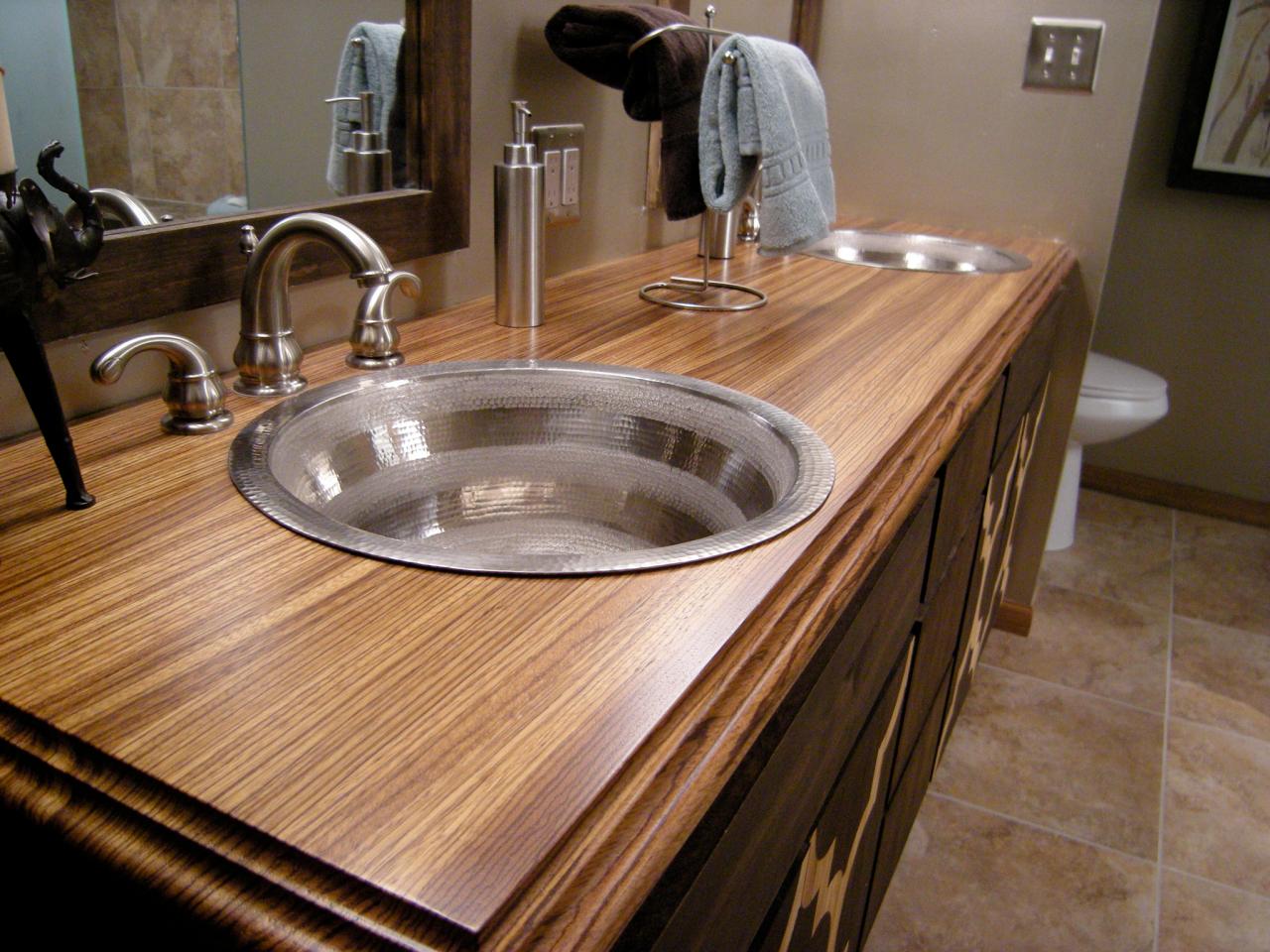
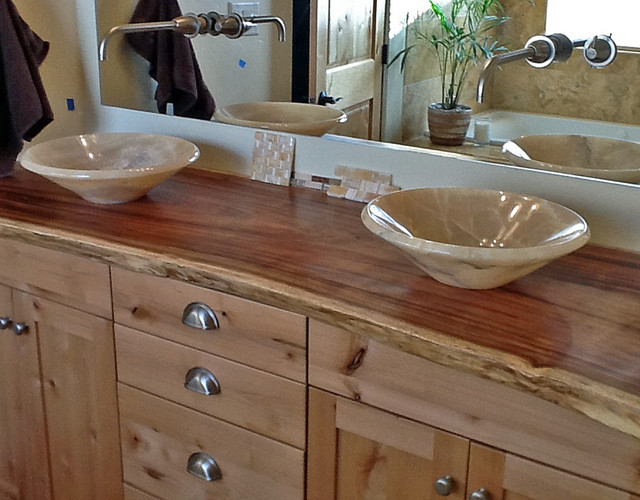
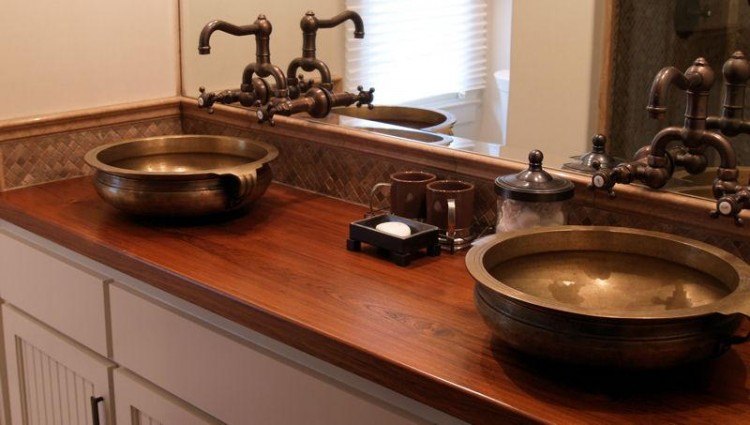








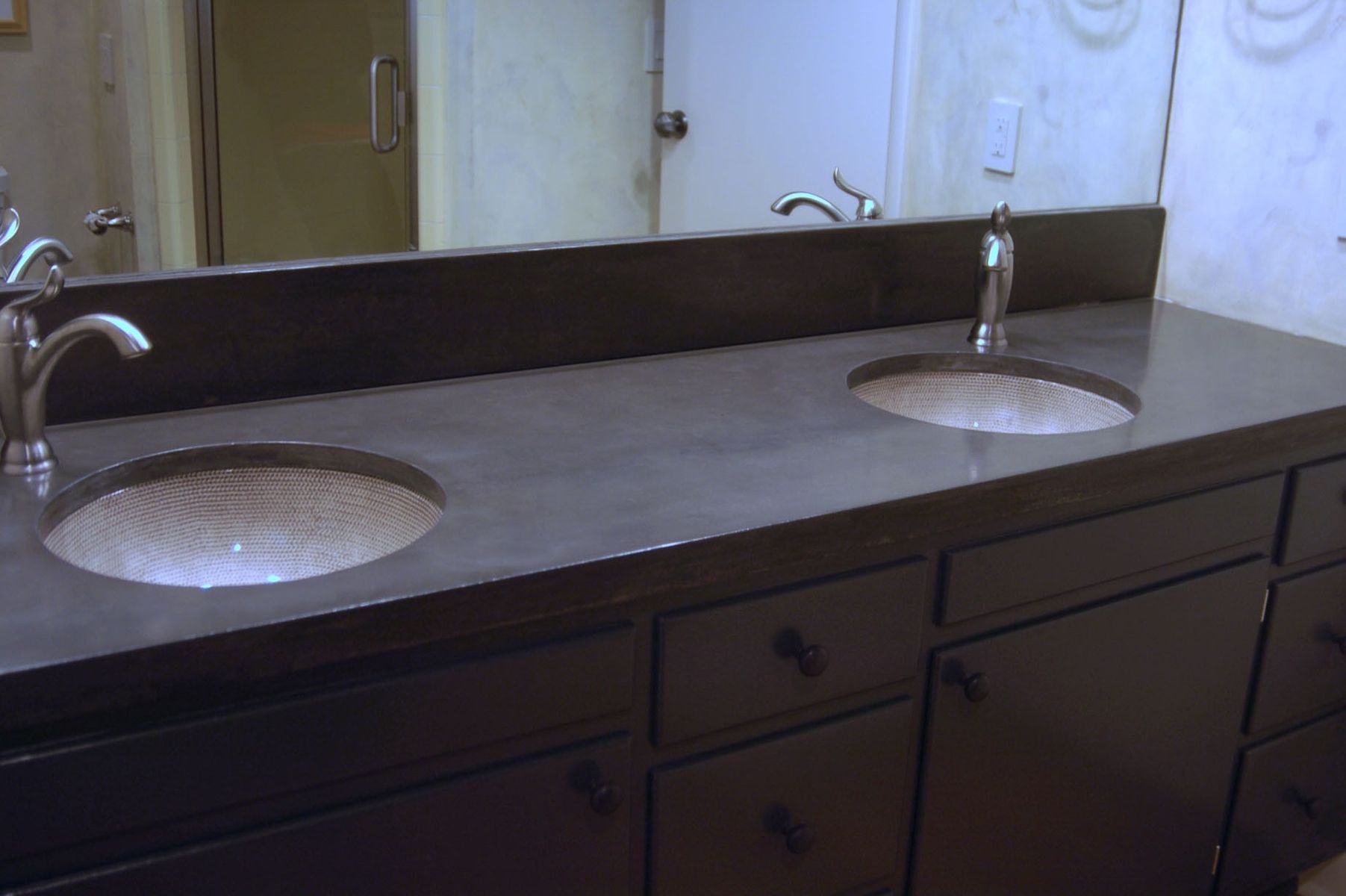
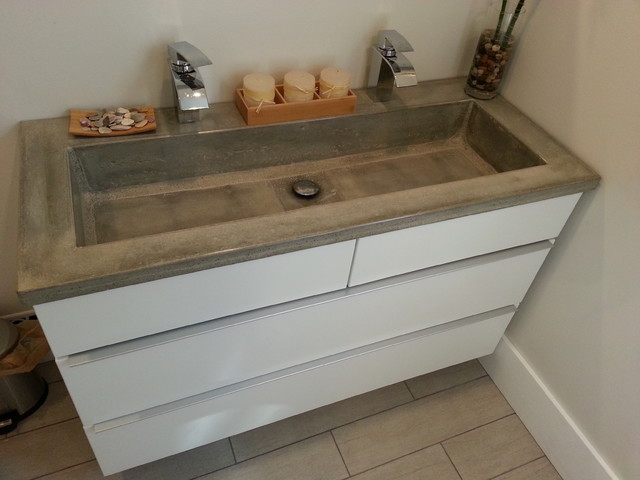

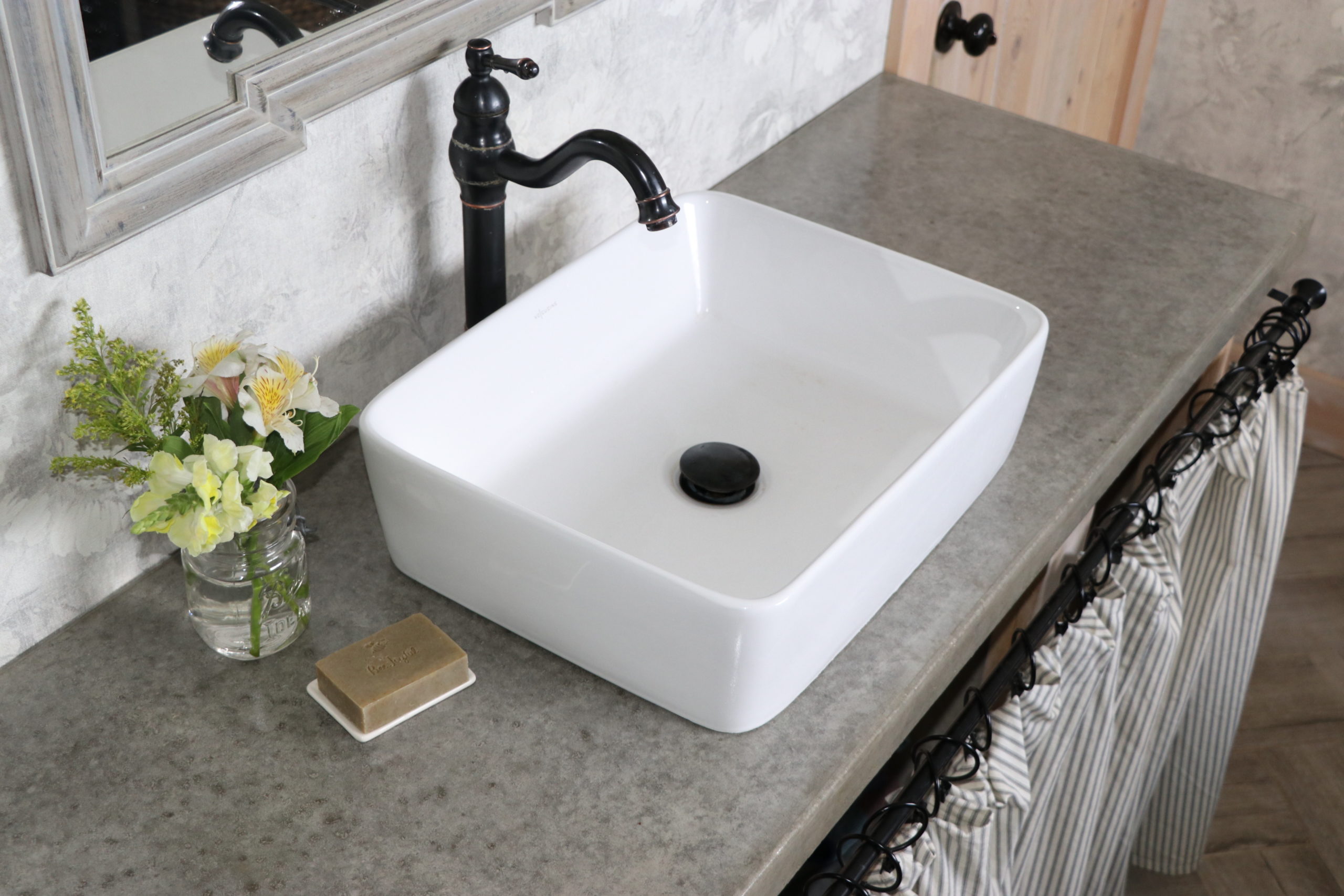
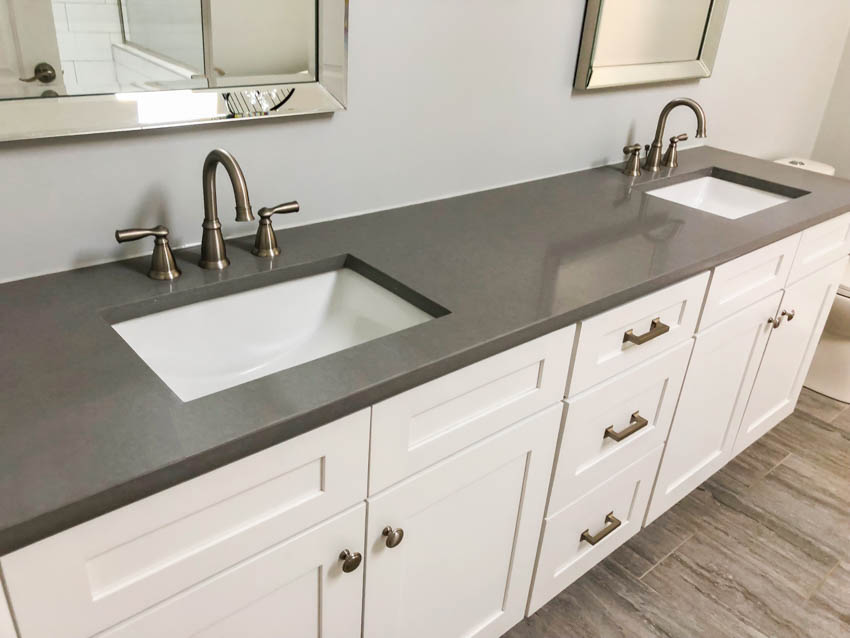

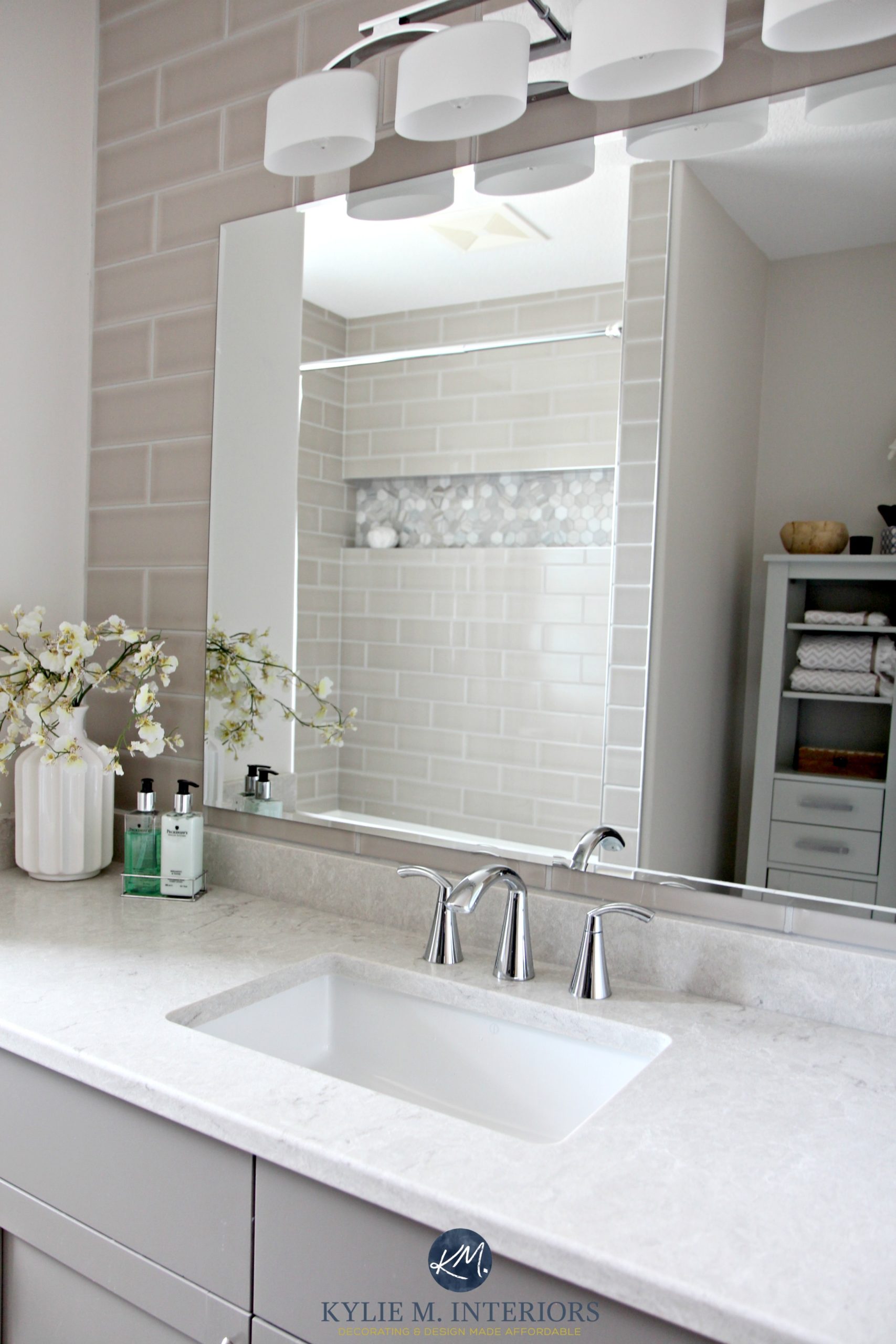







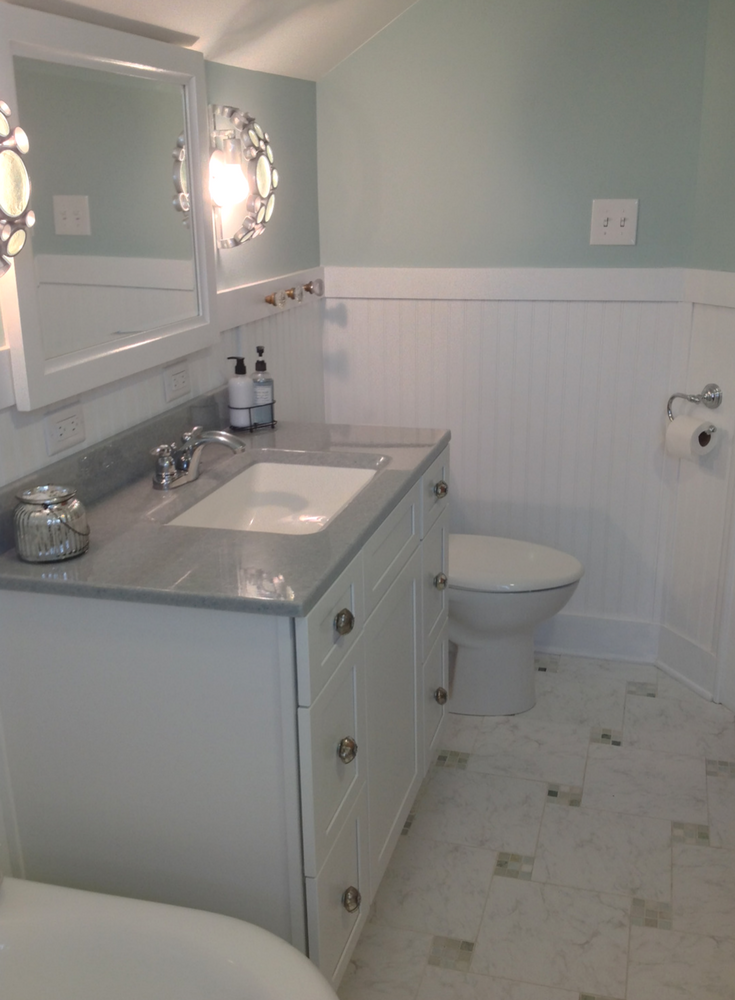


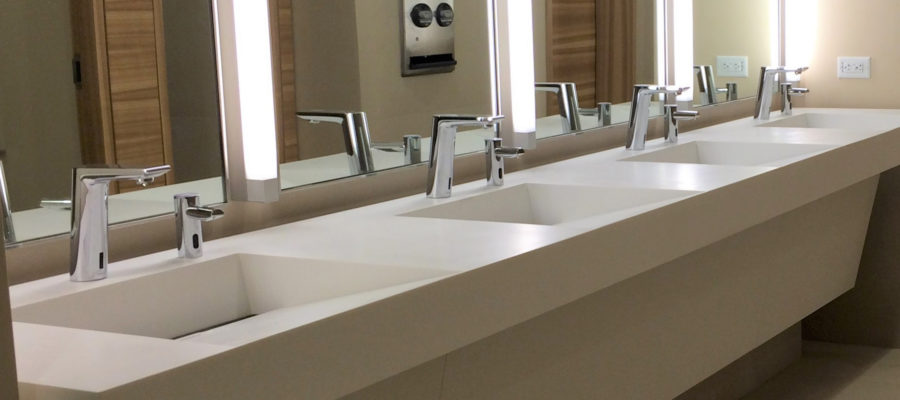

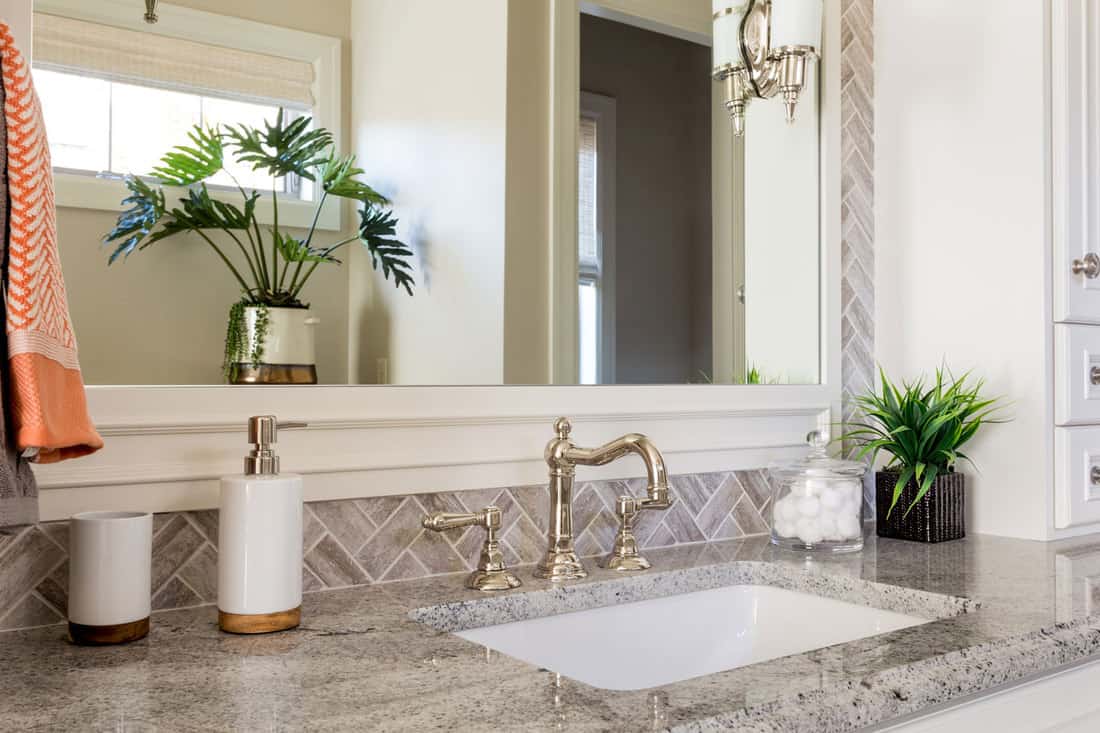


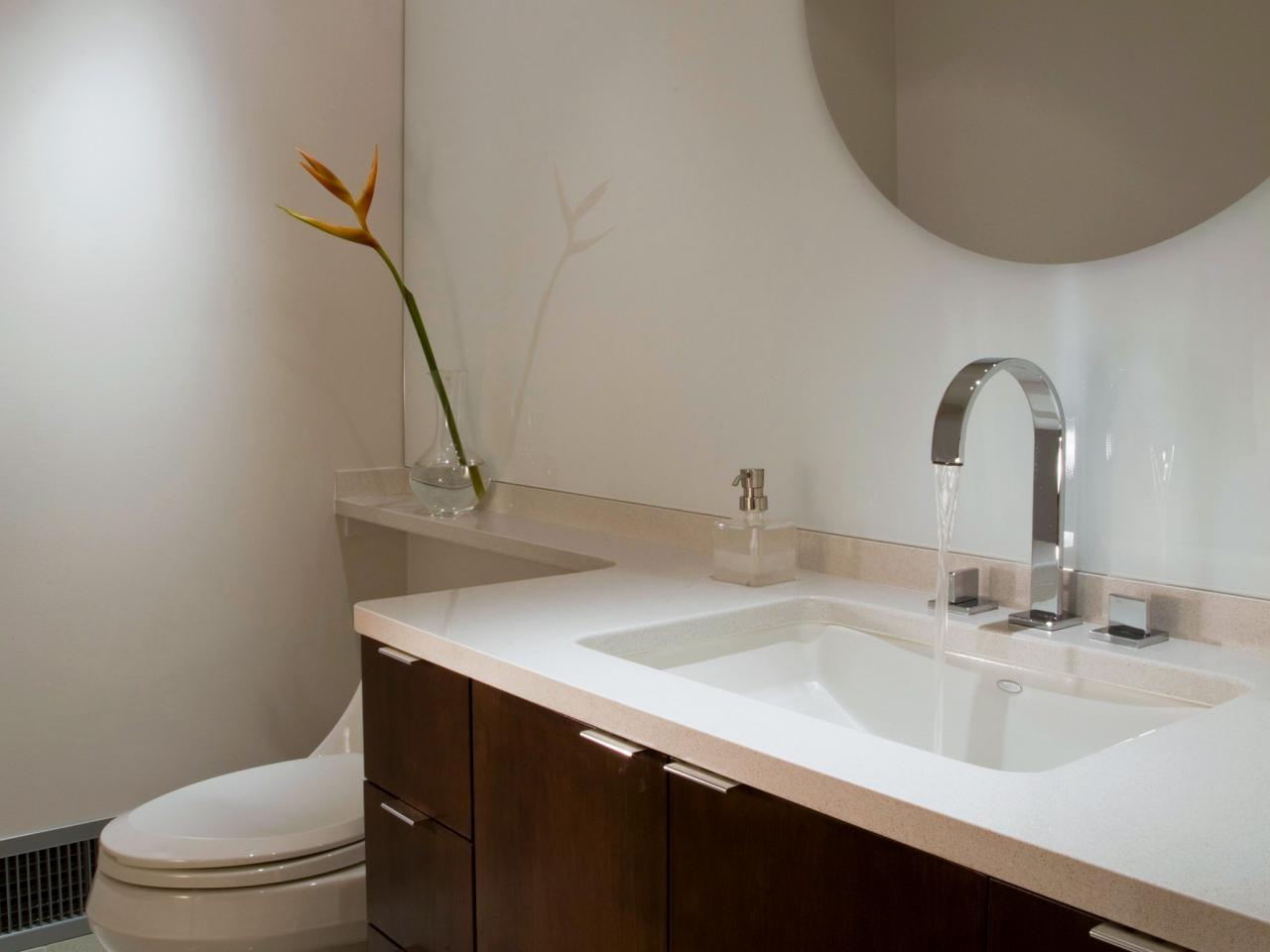


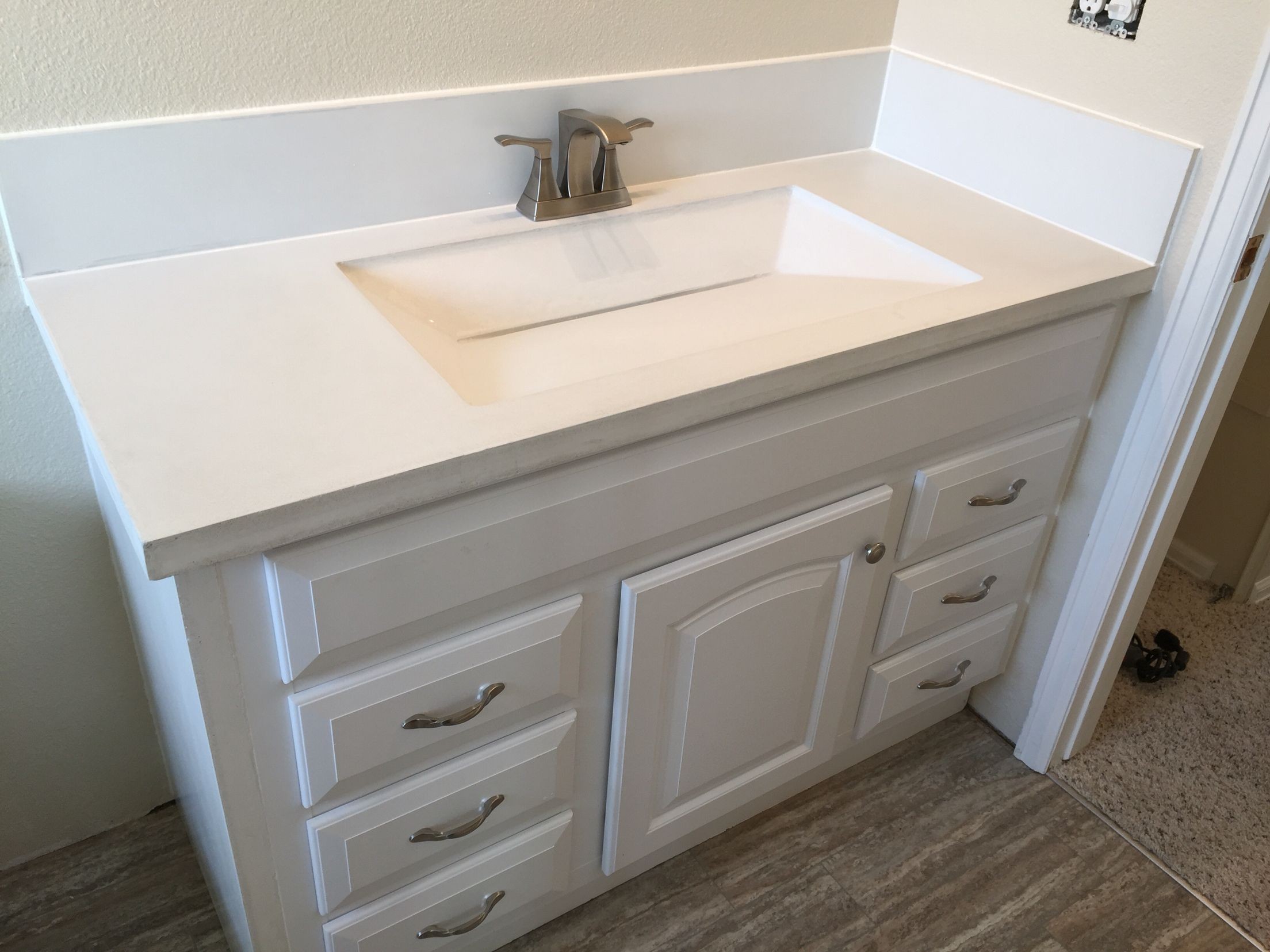
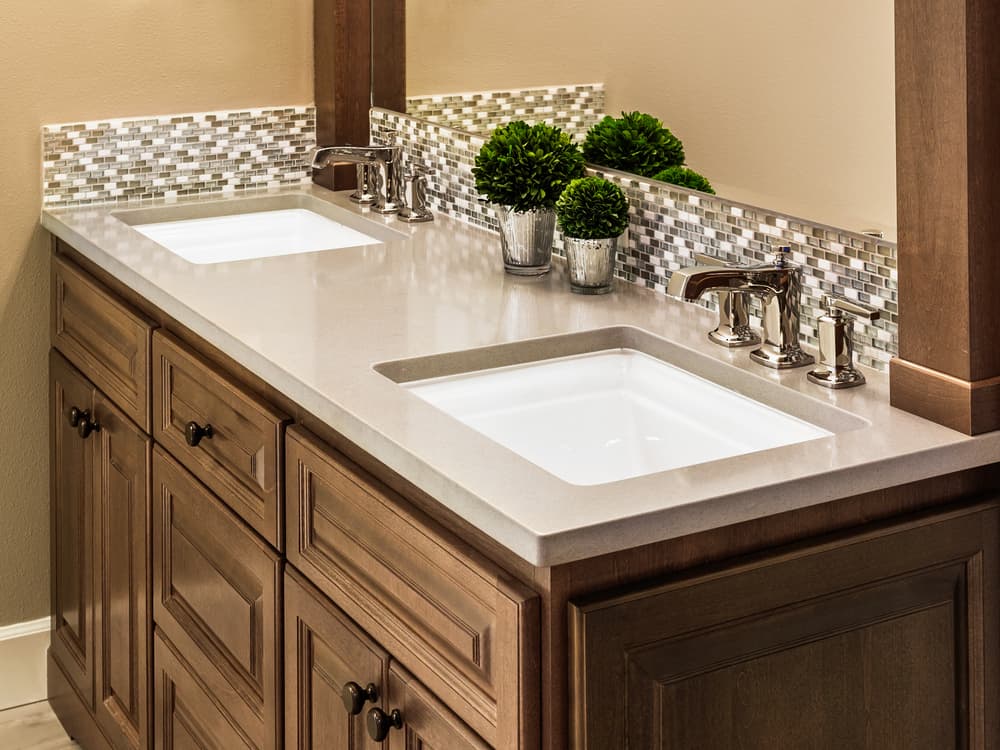
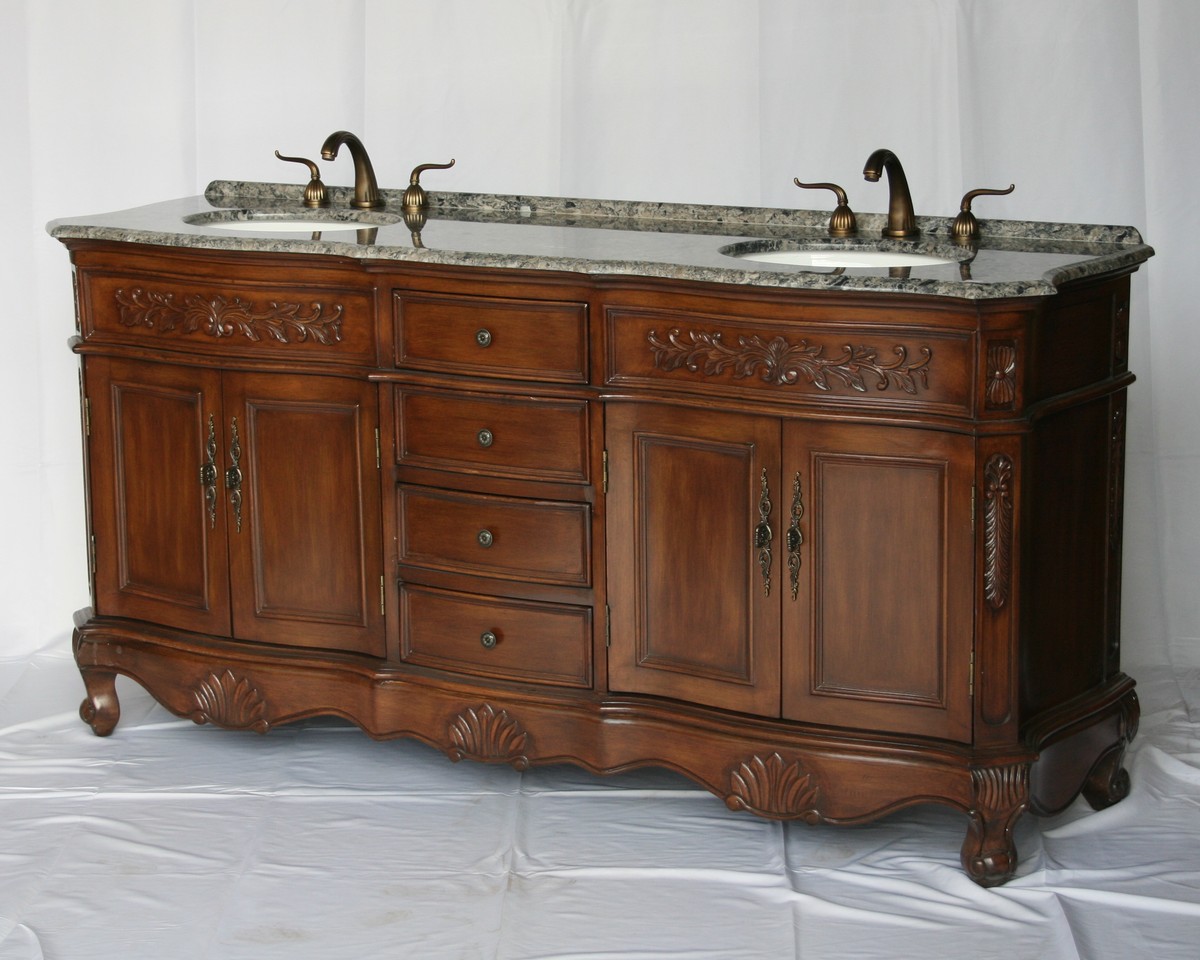

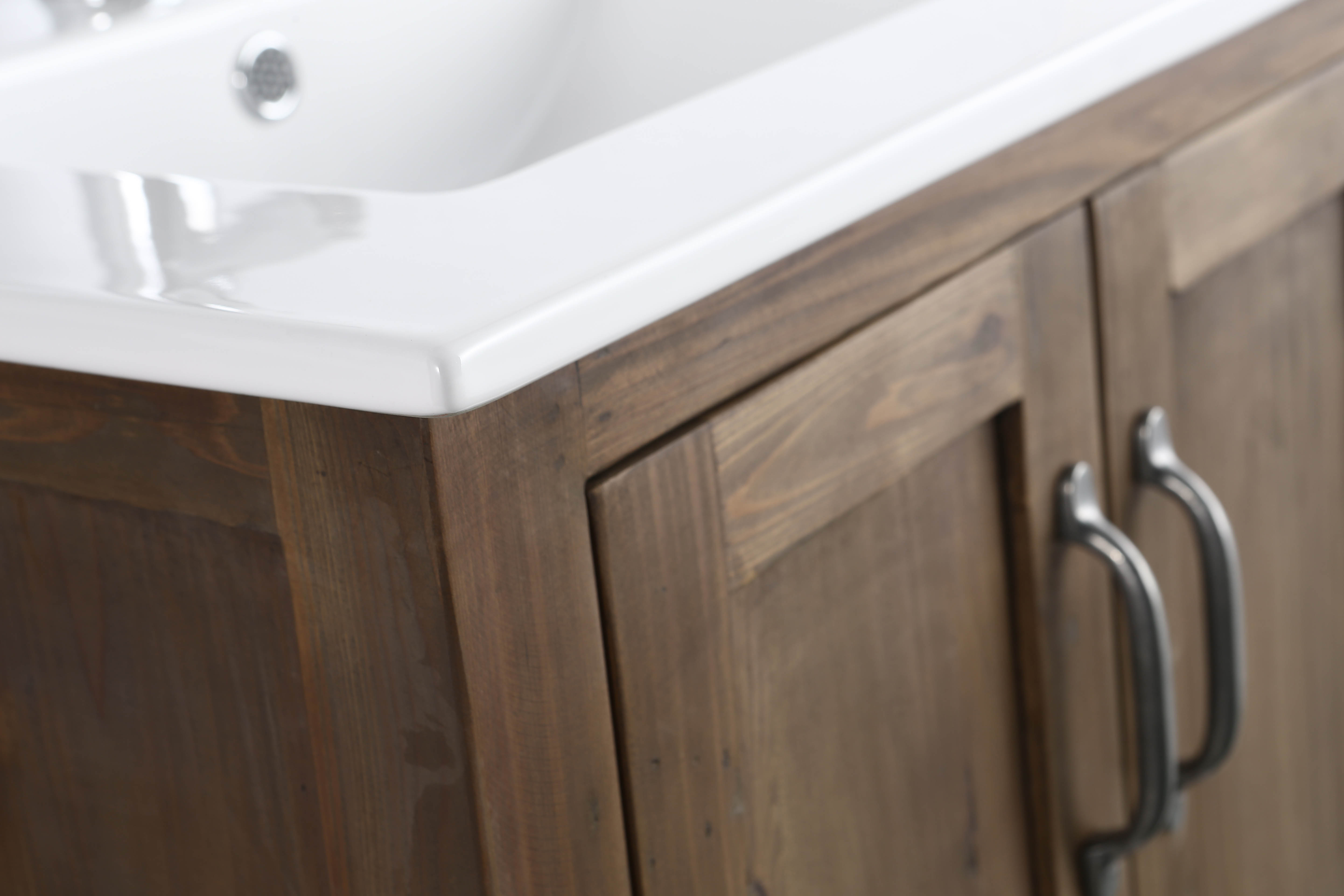






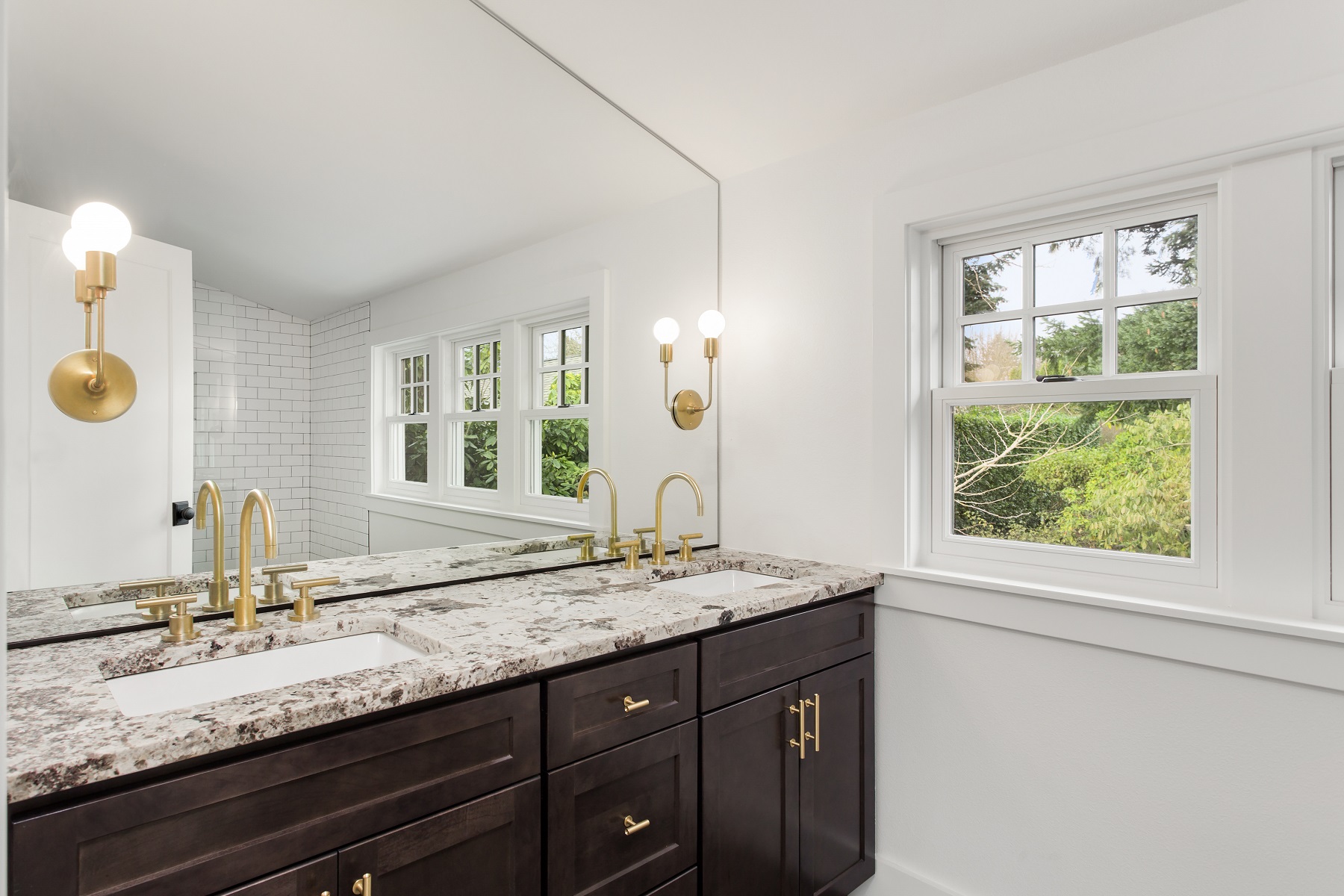
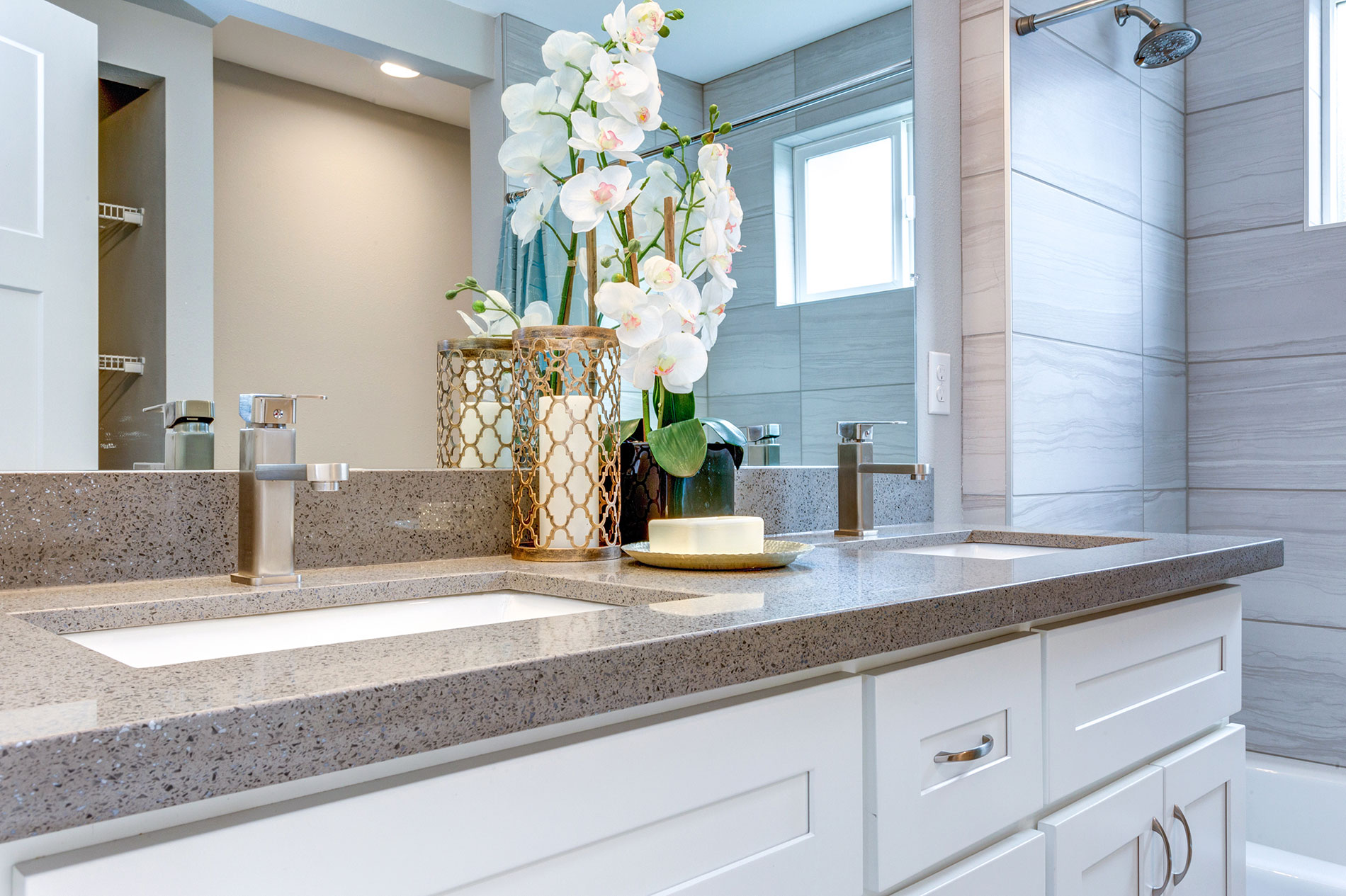


:max_bytes(150000):strip_icc()/Porch-Den-DeSoto-Hardwood-Suede-Queen-Size-Futon-Sofa-Bed-e1e117db-7ed1-443e-b60f-98876730014c-3ea03957bf6c4feeab8aadcdaeaf61c5.jpg)



